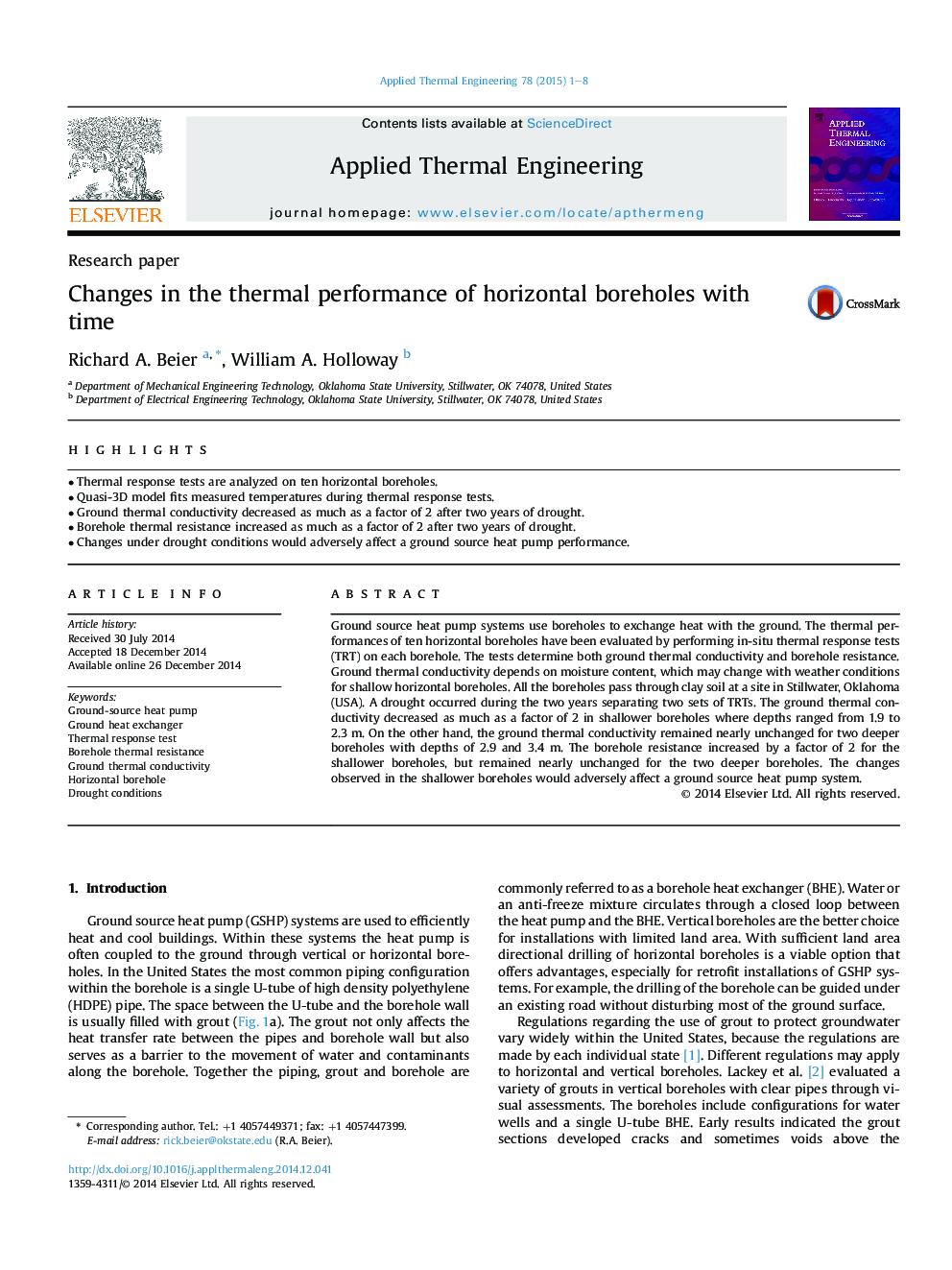| Article ID | Journal | Published Year | Pages | File Type |
|---|---|---|---|---|
| 7048906 | Applied Thermal Engineering | 2015 | 8 Pages |
Abstract
Ground source heat pump systems use boreholes to exchange heat with the ground. The thermal performances of ten horizontal boreholes have been evaluated by performing in-situ thermal response tests (TRT) on each borehole. The tests determine both ground thermal conductivity and borehole resistance. Ground thermal conductivity depends on moisture content, which may change with weather conditions for shallow horizontal boreholes. All the boreholes pass through clay soil at a site in Stillwater, Oklahoma (USA). A drought occurred during the two years separating two sets of TRTs. The ground thermal conductivity decreased as much as a factor of 2 in shallower boreholes where depths ranged from 1.9 to 2.3Â m. On the other hand, the ground thermal conductivity remained nearly unchanged for two deeper boreholes with depths of 2.9 and 3.4Â m. The borehole resistance increased by a factor of 2 for the shallower boreholes, but remained nearly unchanged for the two deeper boreholes. The changes observed in the shallower boreholes would adversely affect a ground source heat pump system.
Keywords
Related Topics
Physical Sciences and Engineering
Chemical Engineering
Fluid Flow and Transfer Processes
Authors
Richard A. Beier, William A. Holloway,
